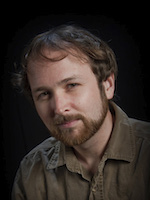
Date: February 4, 2021
Time: 1:00 PM - 2:00 PM
Host: UF Department of Electrical & Computer Engineering
Admission: Free
Location: Via Zoom; Email communications@ece.ufl.edu for Zoom info
“Decision-Making Architecture in Game AI”
Abstract
Computer games have followed and at times driven advances in computing technology throughout the 20th and 21st centuries—and with them, the desire to have realistic and challenging non-player agents has followed. Today, players expect autonomous characters that are not merely intelligent, but that mimic lifelike behaviors that might be expected of real people. As such, modern game AI is focused not only on developing intelligent systems, but also on systems that develop player interest and engagement to enhance players’ experiences.
As the game development industry has exploded—rivaling and sometimes surpassing even cinema as a cultural and economic force—its practitioners have developed specialized frameworks and tools for the development of character behaviors. We will cover how game agents are structured and common architectures used in modern games, including the Decision Tree, State Machine, and Behavior Tree models. The benefits and drawbacks of each approach, paired with examples of use in practice, will provide insight into when, how, where, and when each architectural model fits within the modern game landscape.
Biography
Jeremiah Blanchard, Ph.D., is a faculty member in the Department of Engineering Education and a lecturer in the Department of Computer & Information Science & Engineering at the University of Florida, where he focuses on computer science education and research in human-computer interaction in education. This work includes examination of programming language representations and exploration of how educational games can help students learn science, technology, engineering, and mathematics. He holds a Ph.D. in Computer Engineering from the University of Florida.
Previously, Dr. Blanchard served as Program Director over Game Development at Full Sail University in Winter Park, FL, (in the greater Orlando area), where he taught, served in administration, and developed educational and health-related games. This includes work with the National Flight Academy in Pensacola, Florida, with whom he developed flight simulator scenarios to help teach at-risk middle and high school students mathematics, physics, and history. He also worked with Design Interactive on CogGauge, a game-based cognitive battery system developed on grant funding from NASA with the intention of testing brain injuries in space.